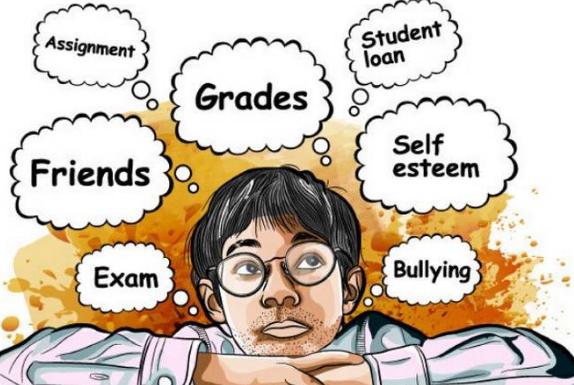
Inside the Teen Mind: Unraveling Anxiety, Stress, and Emotional Turbulence
Teenage years are often painted as a time of freedom, self-discovery, and endless possibilities. But beneath the surface, many teens are navigating a storm of emotions—stress, anxiety, self-doubt, and overwhelming pressure. The adolescent brain is still developing, making emotions feel more intense and harder to regulate. Understanding what goes on inside the teen mind can help parents, educators, and even teens themselves manage these turbulent years with more compassion and clarity.
- The Rollercoaster of Emotions: Why Everything Feels So Intense
Ever wondered why a minor disagreement can turn into a full-blown meltdown for a teenager? Blame it on the brain. The amygdala—the emotional control center—is highly active during adolescence, while the prefrontal cortex, responsible for rational thinking and impulse control, is still a work in progress.
This imbalance means:
- Small setbacks feel like disasters.
- Peer approval becomes life-or-death important.
- Mood swings are frequent and unpredictable.
What helps? Normalizing emotions. Teens need reassurance that feeling deeply is part of growing up, not a flaw.
- The Pressure Cooker: School, Social Media, and the Fear of Falling Behind
Today’s teens face unprecedented pressure. Between academic expectations, social media comparisons, and the looming question of “What will I do with my life?”, stress levels are soaring.
Sources of Stress:
- Academic overload: The race for top grades and college admissions leaves little room for mistakes.
- Social media perfection: Curated online lives make teens feel like they’re never enough.
- Future uncertainty: The world feels more competitive than ever, and many teens fear they won’t measure up.
What helps? Encouraging balance. Teens need downtime, hobbies, and reminders that self-worth isn’t tied to achievements.
- Anxiety: When Worry Takes Over
Anxiety isn’t just “being nervous”—it’s a constant hum of “What if?” in the back of the mind. For many teens, anxiety manifests as:
- Overthinking every social interaction (“Did I sound stupid?”)
- Physical symptoms (stomachaches, headaches, insomnia)
- Avoidance (skipping school, withdrawing from friends)
What helps? Teaching coping mechanisms—breathing exercises, journaling, or talking to a trusted adult. Professional support can also be life-changing.
- The Social Maze: Friendships, Fitting In, and Loneliness
Friendships in adolescence are intense. They provide comfort but can also be a source of drama and heartbreak. Many teens struggle with:
- Fear of rejection (Being left out hurts more than ever.)
- Bullying & cyberbullying (Digital harassment doesn’t end when school does.)
- Changing relationships (Friends drift apart; first loves break hearts.)
What helps? Encouraging healthy friendships and reminding teens that it’s okay to outgrow people. Quality matters more than quantity.
- The Silence Struggle: Why Teens Don’t Always Open Up
Parents often ask, “Why won’t they talk to me?” But for teens, expressing vulnerability can feel risky. They might fear:
- Being judged (“You’re overreacting.”)
- Disappointing adults (“I don’t want to worry them.”)
- Losing independence (“If I admit I’m struggling, they’ll treat me like a kid.”)
What helps? Creating a safe space—listening without jumping to advice, avoiding dismissive phrases, and respecting their need for privacy.
- Coping Mechanisms: Healthy vs. Harmful
When emotions feel overwhelming, teens may turn to coping strategies—some helpful, some harmful.
| Healthy Coping | Unhealthy Coping |
| Exercise | Self-isolation |
| Creative outlets (art, music) | Substance use |
| Talking to someone they trust | Excessive screen time |
| Mindfulness practices | Self-harm |
What helps? Encouraging positive outlets and offering support without shame if they’re using unhealthy coping methods.
- How Adults Can Make a Difference
Teens need guidance, not control. Here’s how adults can help:
- Validate their feelings (“That sounds really hard.” instead of “It’s not a big deal.”)
- Model healthy behavior (Show them how you handle stress.)
- Give them autonomy (Let them make some decisions, even if they mess up.)
- Stay present, not overbearing (Be available without interrogating.)
Final Thoughts: It’s a Phase, But It Matters
The teen years are temporary, but the lessons learned—about resilience, self-worth, and emotional management—last a lifetime. By understanding the inner workings of the teenage mind, we can offer better support, reduce stigma around mental health, and help teens navigate these years with a little more ease.